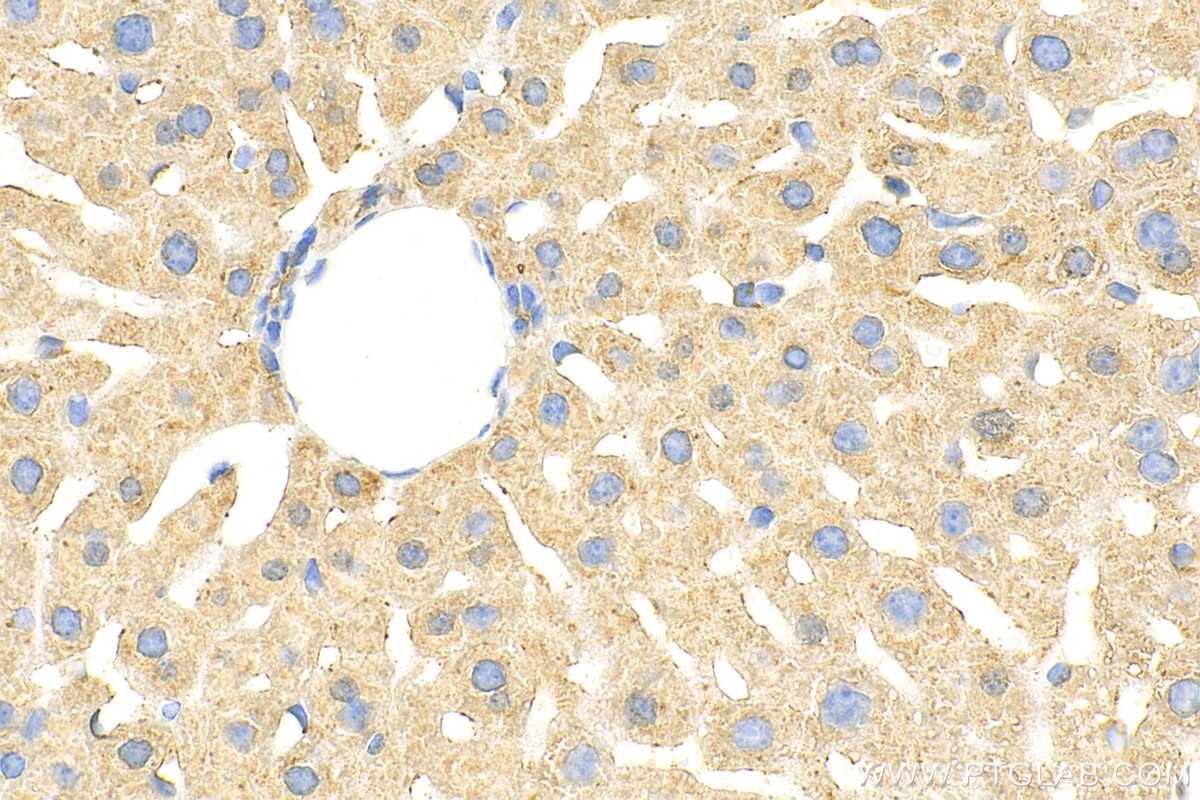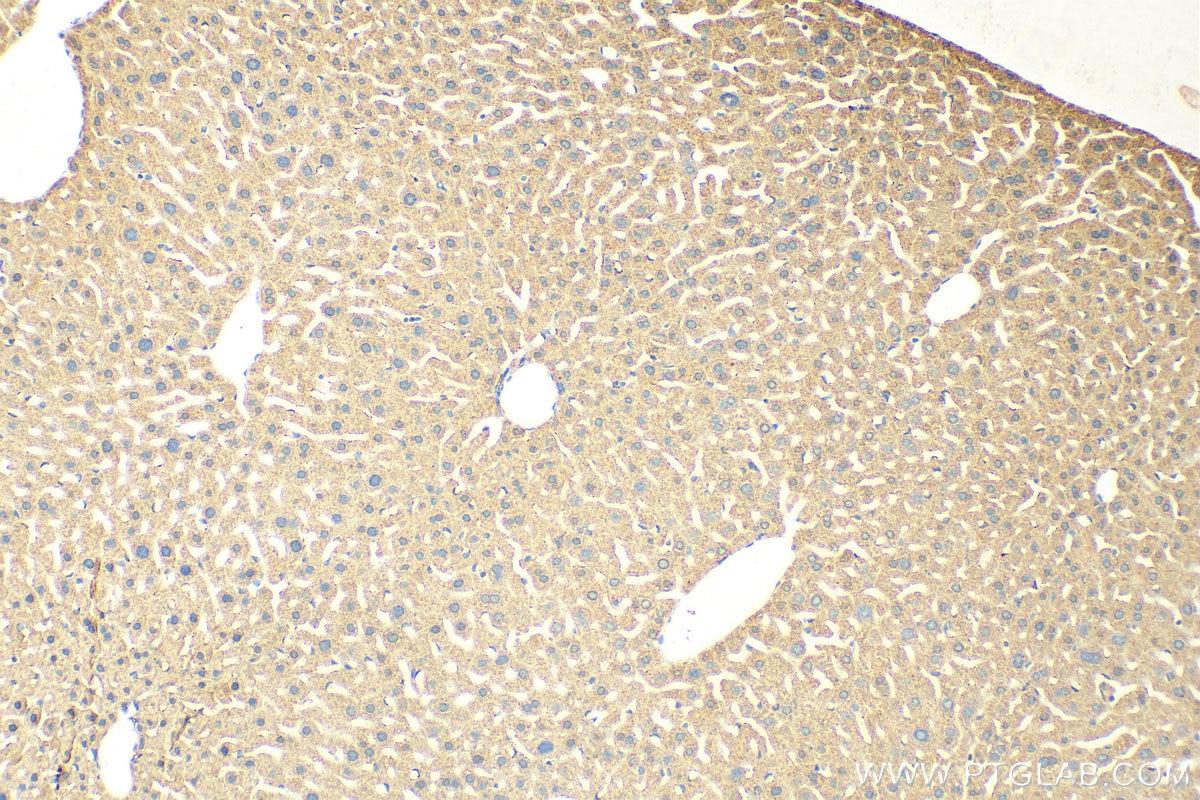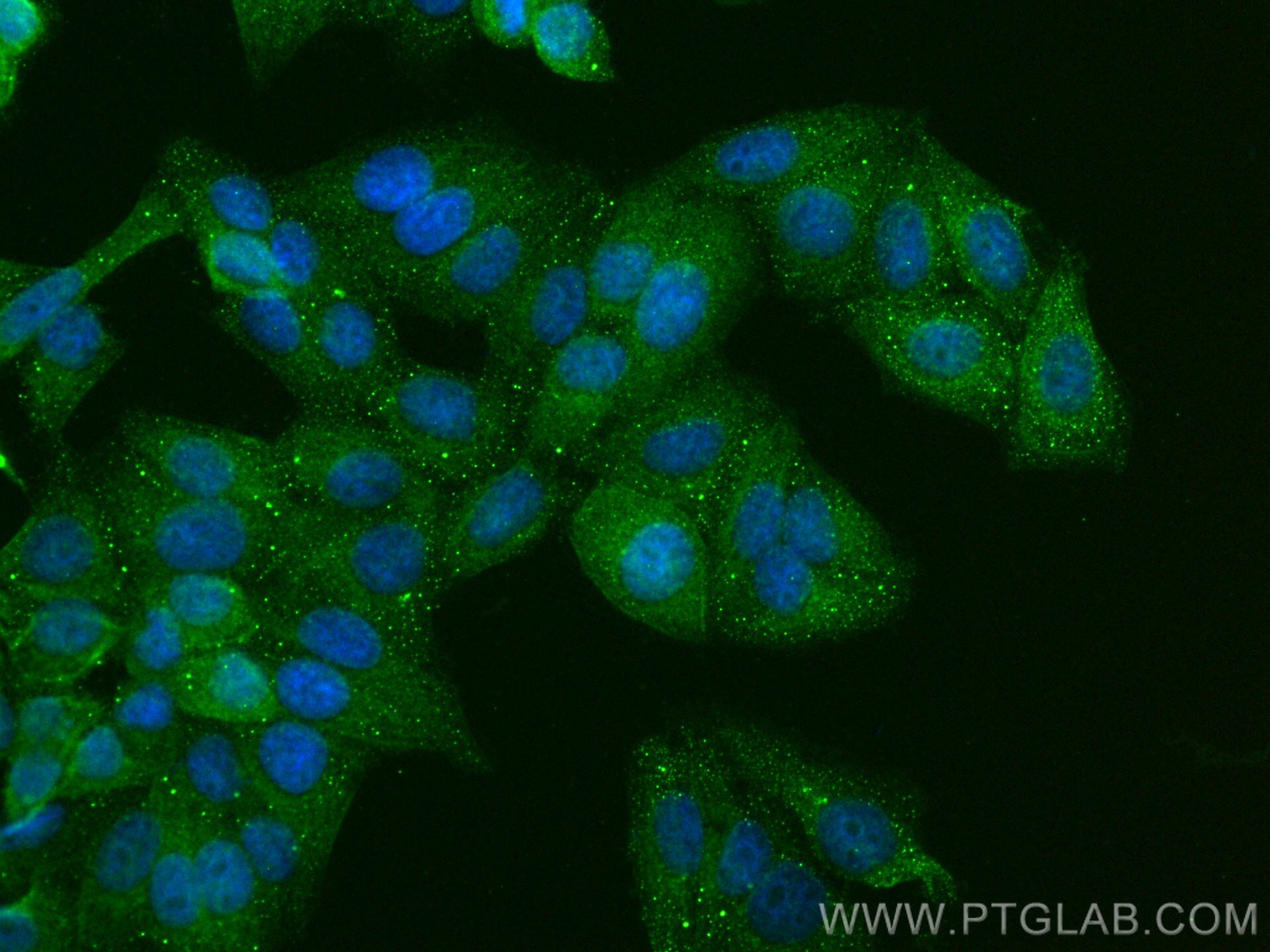Tested Applications
| Positive IHC detected in | mouse liver tissue Note: suggested antigen retrieval with TE buffer pH 9.0; (*) Alternatively, antigen retrieval may be performed with citrate buffer pH 6.0 |
| Positive IF/ICC detected in | HepG2 cells |
Recommended dilution
| Application | Dilution |
|---|---|
| Immunohistochemistry (IHC) | IHC : 1:50-1:500 |
| Immunofluorescence (IF)/ICC | IF/ICC : 1:200-1:800 |
| It is recommended that this reagent should be titrated in each testing system to obtain optimal results. | |
| Sample-dependent, Check data in validation data gallery. | |
Product Information
31522-1-AP targets ARSE in IHC, IF/ICC, ELISA applications and shows reactivity with human, mouse samples.
| Tested Reactivity | human, mouse |
| Host / Isotype | Rabbit / IgG |
| Class | Polyclonal |
| Type | Antibody |
| Immunogen |
CatNo: Ag24371 Product name: Recombinant human ARSE protein Source: e coli.-derived, PGEX-4T Tag: GST Domain: 524-567 aa of BC130438 Sequence: HILTPASEPVFYQVMERVQQAVWEHQRTLSPVPLQLDRLGNIWR Predict reactive species |
| Full Name | arylsulfatase E (chondrodysplasia punctata 1) |
| GenBank Accession Number | BC130438 |
| Gene Symbol | ARSE |
| Gene ID (NCBI) | 415 |
| RRID | AB_3670019 |
| Conjugate | Unconjugated |
| Form | Liquid |
| Purification Method | Antigen affinity Purification |
| UNIPROT ID | P51690 |
| Storage Buffer | PBS with 0.02% sodium azide and 50% glycerol, pH 7.3. |
| Storage Conditions | Store at -20°C. Stable for one year after shipment. Aliquoting is unnecessary for -20oC storage. 20ul sizes contain 0.1% BSA. |
Background Information
ARSE (arylsulfatase E), is a member of the sulfatase family. This enzyme is glycosylated post-translationally. Sulfatases, including ARSE, are essential for the correct composition of the bone and cartilage matrix.
Protocols
| Product Specific Protocols | |
|---|---|
| IF protocol for ARSE antibody 31522-1-AP | Download protocol |
| IHC protocol for ARSE antibody 31522-1-AP | Download protocol |
| Standard Protocols | |
|---|---|
| Click here to view our Standard Protocols |








